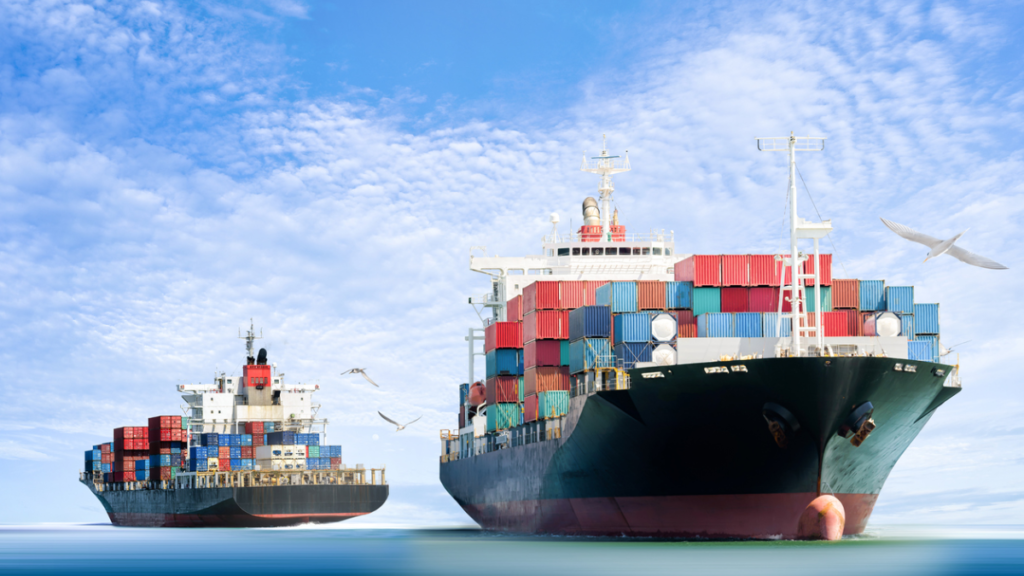Tag: trade


Why it would be madness to produce all our own food
March 14, 2017 | Post
There’s a reason why, in times of war, countries have blockaded others.

Exports only matter because they let us import
March 6, 2017 | Post
Among economics data watchers, a country’s exports enjoy a hallowed status. The ability of producers in country A to sell goods and services to people in other countries is taken as a sign of A’s economic strength, although the underlying metric for economic strength goes unmentioned. In addition, job counters across the spectrum constantly count […]

Trump's proposed wall and tax are folly
February 22, 2017 | Post
The idea is wrongheaded on both counts: they would harm citizens of the US as well as those of Latin America.

Trade restrictions imperil our standard of living
February 17, 2017 | Post
“The market is not a place, a thing, a collective entity. The market is a process, actuated by the interplay of the actions of the various individuals cooperating under the division of labor.” – Ludwig von Mises

This Valentine’s Day, the chocolate supply is in turmoil.
February 14, 2017 | Post
Learn how to drop the word “déblocage” into your romantic evening

War, diplomacy, and global uncertainty in the Trump era
February 14, 2017 | Post
Are Trump’s cabinet full of generals, his openness to torture, and the “peace through strength” message from the White House all signs that he plans to rely on military power.

Explaining the Protectionist Instinct
February 10, 2017 | Post
One of the gravest economic mistakes that humans can make is to forget that ours is unavoidably a world of scarcity.

What the Patriots' Super Bowl win can teach you about comparative advantage
February 9, 2017 | Post
We don’t have to have to be like Brady and have an absolute advantage to profit.

The moral and spiritual blessings of trade among all nations
February 7, 2017 | Post
Free trade doesn’t just make us better off. It makes us better people. Donald Trump claims that raising barriers to trade is one of the things it will take to “Make America Great Again,” but he is wrong. Greatness—both of wealth and of moral character—comes from trade. And we have known this for a very […]

The rules of trade
February 3, 2017 | Post
One of the most egregious misunderstandings about trade is that the government of country A should allow its people to trade freely with peoples of other countries only if governments of, and producers in, other countries “play by the rules” – which usually means “plays according to the rules that the rulers and politically powerful […]

Taxing global trade is not deregulation
January 28, 2017 | Post
Trump-style economic nationalism, like the more full-throated fascism with which it shares much, aims to bring back the mythical glory days of the nation. But if we really want to make America great (again), we should learn the lesson of history, as well as economic theory, that prosperity comes from the free movement of goods, services, and people regardless of arbitrary political lines.

America changed, and the Rust Belt failed to adapt
January 27, 2017 | Post
On Friday, January 20, 2017, Donald Trump was sworn in as the 45th President of the United States. His victory in the 2016 election was a surprise to many, and his success in the so called Rust Belt made it happen. Wisconsin, Michigan and Pennsylvania all went to Trump, something that hadn’t happened for a Republican […]

Commerce is pointing the way to a more peaceful and prosperous Cuba.
January 23, 2017 | Post
Commerce brings out the best in human beings by providing incentives to care about others. Those who can’t rise above focusing on their short-term narrow needs have little ability to meet the needs of others.

Importers are exporters, exporters are importers. Slapping tariffs on imports would hurt our most competitive firms
January 22, 2017 | Post
In today’s globally connected world with dynamic global supply chains for raw materials and inputs, and global marketplaces for final sales, it’s an economic fact of the modern world economy that: a) exporters are importers and b) importers are exporters.

Against international economics as a sub-discipline
January 22, 2017 | Post
Only individuals, separately or in voluntarily formed groups such as firms, trade; countries as such do not trade.

President Trump's 6 biggest threats to liberty
January 20, 2017 | Post
Donald Trump is president. Here are his six biggest threats to liberty.

How to get millions of people working for you
January 8, 2017 | Post
“The real price of everything, what everything really costs to the man who wants to acquire it, is the toil and trouble of acquiring it.” — Adam Smith

Countries are not companies
January 6, 2017 | Post
The problem is that business experience does not automatically translate into good economic policy.

Christmas gifts are a hassle. Why do we bother?
January 5, 2017 | Post
We spend a lot of time and energy getting gifts for our loved ones. Yet a look at the return lines in many stores this time of year seems to indicate our time could be better spent wrapping a corresponding amount of cash. Why don’t we?

Trump’s ban on immigration from certain countries is illegal
December 19, 2016 | Post
For almost a decade, Congress debated creating an immigration system free from discrimination by nationality, country of birth, or country of residence. President-elect Trump, however, now proposes to discriminate unlawfully against certain foreign nationals on the basis of the same protected grounds without any legislation from Congress.

An economic analysis of protectionism clearly shows that Trump’s tariffs would make us poorer, not greater
December 17, 2016 | Post
Trump’s base will be hurt the most by his wealth-destroying and punitive trade policy.

Did the US provoke Japan’s attack on Pearl Harbor?
December 7, 2016 | Post
The common American narrative that Japan launched an entirely unprovoked attack on an American territory — and therefore the US was right to respond in self-defense — is a fiction.

Pay for bone marrow, save lives
November 29, 2016 | Post
This past week, I was on a panel for a Senate Hill Briefing entitled “Should compensation for bone marrow donors be legal?”

A place where your vote matters
November 22, 2016 | Post
Have you ever stopped and looked around the grocery store? There are thousands of products neatly arranged and conveniently located just for you.

